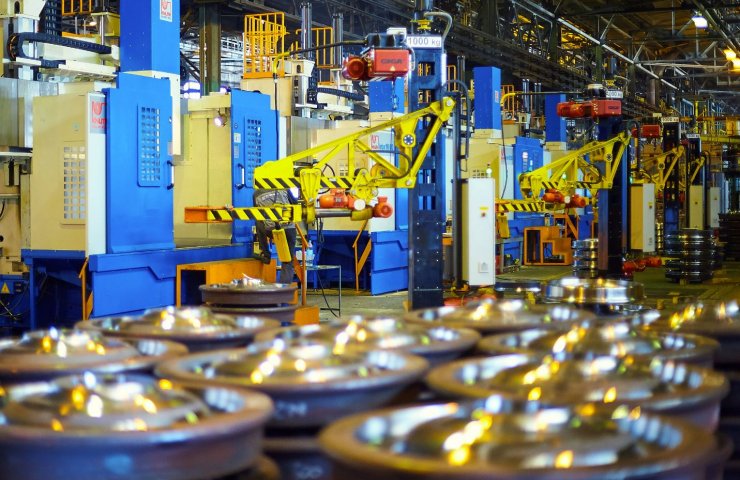the Eurasian economic Commission (EEC) resumed from June 2, 2020, the levying of import duties on steel solid-rolled wheels originating from Ukraine in the amount 34,22%. The re-anti-dumping investigation was filed by the consumers of this metal in Belarus (OJSC "BELAZ") and in Kazakhstan (JSC "KTZ "Kazakhstan Temir Zholy").
the source Kommersant in the EEC on the market of railway wheels are now seeing a stabilization of demand after the peak of last year: "Prices on wheel in the Eurasian economic Union (EEU) can decrease the threat of surplus capacity producers of the Eurasian Union".
Refund support the Ministry of transport and Russian Railways. The Ministry is confident that the "Interpipe" have benefited disproportionately from a shortage of wheels on the Russian market and trying to gain a foothold in the market, hindering the use of Russian operators and Chinese wheels. But to be opposed duties on Ukrainian goods.
Duties on Ukrainian steel well.d. the wheels were first introduced in 2015 in the amount of 4.75% for a period of 5 years. In 2018, it was increased to 34.22%, but in August 2019 was suspended due to a shortage of wheels on the market of the Eurasian Union. Shortages of CCC, the Eurasian economic Commission was also called increasing the production of new cars, write-off of previously used second-hand wheels and the lack of long-term system of information interaction between consumers and producers of wheels relative to the needs 3-5 years in the future.
Union operators of railway transport (SORT) noted that the price of CKK is still kept at a high level, exceeding the level of 2015 is almost three times (65 thousand rubles). The decision to return to duty will only lead to the maintenance of high prices for the CCC and even their further growth on the Russian market, which is unacceptable "in a deep crisis, the decline in the volume of freight rail traffic (up to 11% in 2020, according to forecasts of the Ministry of transport), reducing the volume of transport engineering, revenue and financial stability to cargo owners and transport companies".




